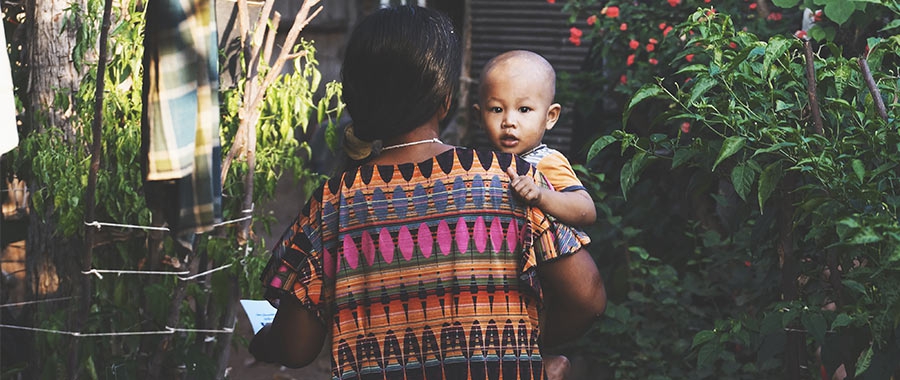The views expressed in our content reflect individual perspectives and do not represent the authoritative views of the Baha'i Faith.
The most ancient of human institutions—the family—has always been with us, etched deeply into our social psyche.
Around the world, the family unit appears in many different forms, but despite these variations, it serves the same purpose: to satisfy our basic need to belong.
The family forms a complex network of relationships held together by mutual love and the reciprocity of trust and trustworthiness, built upon a covenant of promises offered and kept and the willingness to share what we have with each other.
At its best the family sustains itself by the exchange of kindnesses often too small to be noticed and too big to be forgotten. That ongoing exchange of kindnesses nurtures the family’s bonds, unifies its purpose and fosters its growing love.
Each family is different, and when it lives up to its true nature, each family has the potential to become exceptional. The unique resonance of each family comes from the harmonious individuality of its members. The Baha’i teachings say the family is a choir in which each of us takes turns singing the melody of the soloist and the harmony of the chorus:
Note ye how easily, where unity existeth in a given family, the affairs of that family are conducted; what progress the members of that family make, how they prosper in the world. – Abdu’l-Baha, Selections from the Writings of Abdu’l-Baha, p. 279.
A family is a nation in miniature. Simply enlarge the circle of the household, and you have the nation. Enlarge the circle of nations, and you have all humanity. The conditions surrounding the family surround the nation. The happenings in the family are the happenings in the life of the nation. – Abdu’l-Baha, The Promulgation of Universal Peace, p. 156.
From the earliest times, the institution of the family has allowed us to identify who we are by our relationships with others. The terms we find within it are inclusive and reciprocal: We are called “son” or “daughter” because we call others “mother” and “father.” It is the same between aunts and nieces, uncles and nephews, brothers and sisters, wives and husbands. These relationships have been formalized by every culture of the world into complex structures of kinship that serve to define our social rights and responsibilities. Over the centuries the social systems that have arisen from these kinships may have changed, but the family unit still forms the basis of social order and stability.
The institution of the family is a gift from God, whose purpose is to provide us with the foundation for society and an environment conducive to continuous spiritual growth. For these reasons, the family is held sacred in every religion; it is a holy institution for the establishment of love and affinity in the world. The spiritual commitment inherent in marriage forms the bonded core of the family. The Baha’i teachings explain that when husband and wife both turn toward God, the Word of God brings them closer together and strengthens their relationship, producing powerful results:
Verily, it [the Word of God] causeth the multitudes to assemble together and the remote ones to be united. Thus the husband and wife are brought into affinity, are united and harmonized, even as though they were one person. Through their mutual union, companionship and love great results are produced in the world, both material and spiritual. – Abdu’l-Baha, Star of the West, Volume 5, p. 85.
The marital bond has far-reaching social, material, and spiritual implications, both in their obligations and in their rewards.
Beyond the notion of the legitimization of a long-term relationship or a mere legal contract between two individuals, true marriage expresses the unity that binds both partners to each other and to every other member of the family. The sacred commitment of marriage extends beyond the love, honor, and respect we show toward our mate; it is the willingness to participate in the welfare and well-being of the entire family, regardless of its structure.
The institution of marriage cannot be isolated from the institution of the family. The vows we make to the former equally apply to the latter. We are married to the destinies of our spouse, the children we rear, and our children’s children. Our lives become linked and intertwined as we nurture each other. This is true of the entire family. On many occasions we find ourselves contributing to the good fortune of our siblings and in-laws, even the distant relations on the fringes of our family tree. In whatever ways we are related, we share each other’s lives.
The greatest benefits we can derive from being part of a family are spiritual rather than material in nature; in fact, some may argue that having a family can be a drain on our material well-being. We are blessed with the opportunity to affect and be affected by the lives of our relatives. The family is an ongoing social, economic, and spiritual development project. As we will see in the essays ahead, it is the model and building block for communities and nations alike.
















Comments
Sign in or create an account
Continue with Googleor